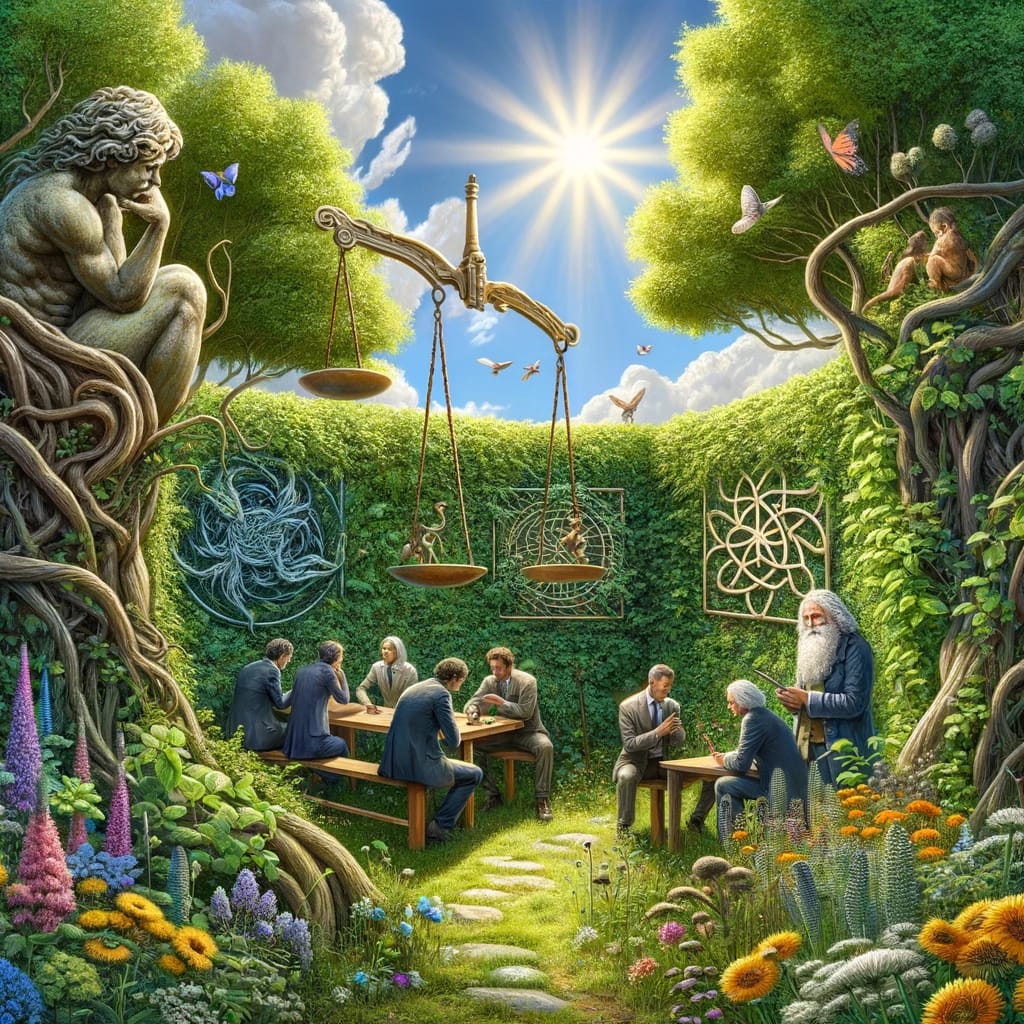
David Hume’s Sentiments and Passions
David Hume’s exploration into the origins of vices and virtues is nuanced, grounded in his psychological and empirical approach to human nature. In “A Treatise of Human Nature” and later works, Hume argues that the origins of virtues and vices lie in human emotions and the utility they promote in social living.
Human Sentiments
Hume believed that human beings naturally possess feelings of sympathy and empathy. These sentiments are the basis upon which we judge actions and intentions as virtuous or vicious. He further reasoned that these empathetic responses are crucial for the moral and social fabric, guiding us not only to commend virtue but also to improve the welfare of others by acting on our feelings of compassion and kindness.
Human Passions
Our emotional responses to the actions or characteristics of others determine their moral value. For instance, actions that elicit approval or pleasure are deemed virtuous, while those that cause disapproval or pain are considered vicious.
Utility:
Many virtues and vices, according to Hume, can be understood in terms of their utility to society. Traits or actions that contribute to the well-being and cohesion of society (such as justice, benevolence, and honesty) are valued as virtues. Conversely, those that harm social harmony (such as theft, murder, and deceit) are regarded as vices. This perspective emphasizes the functional aspect of morality in facilitating cooperative living and societal stability.
Natural and Artificial Virtues
Hume distinguishes between ‘natural’ virtues (such as kindness and generosity) and ‘artificial’ virtues (such as justice and property rights). Natural virtues are innate and arise spontaneously from human nature, fostering immediate good and social harmony. Artificial virtues, on the other hand, are the product of social conventions and institutions designed to address complex social interactions and conflicts, ensuring societal stability and fairness.
Reflection and Social Learning
Although Hume places a significant emphasis on innate sentiments, he also acknowledges the role of reflection, education, and social norms in shaping our moral perceptions. Our ideas of virtue and vice are refined and expanded through cultural influences, personal reflection, and moral education.
Sentiments and Passions
In summary, for Hume, the origins of virtues and vices are deeply rooted in human nature, particularly in our emotional responses and the utility of certain traits or behaviors in promoting social harmony and cooperation. His approach underscores a complex interplay between innate sentiments, societal utility, and the influence of social norms and reflection